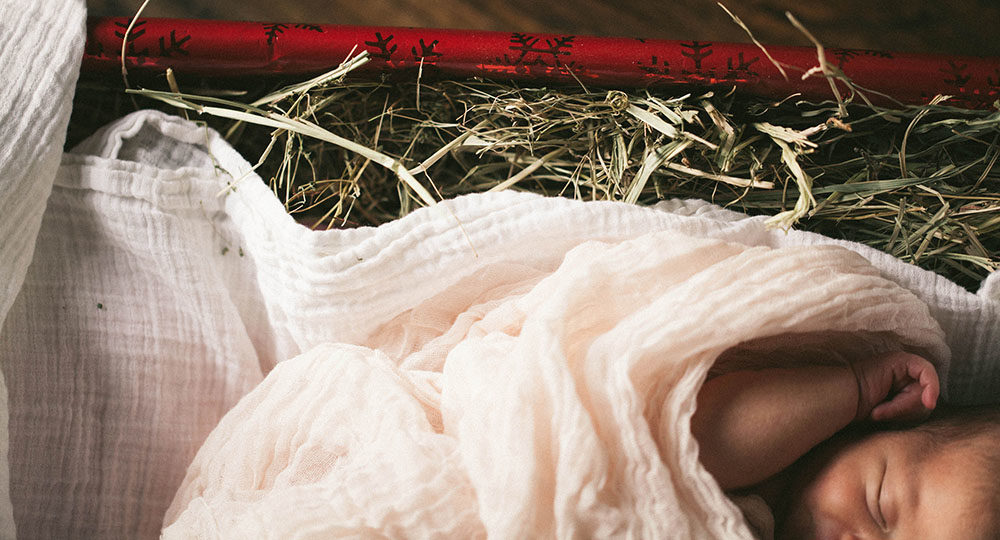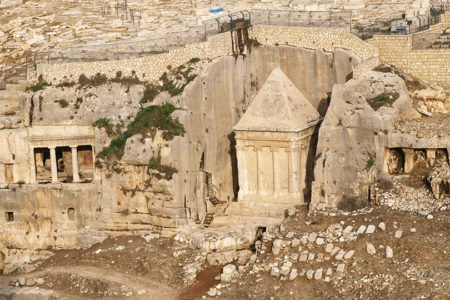Behold the Lamb
The great theologian Lewis Sperry Chafer wrote, “There is no point in human history where the divine sovereignty and human responsibility, or free will, come into more vivid juxtaposition than they do in the crucifixion of Christ.”1 The apostle Peter even declared that Jesus was delivered to His executioners according to the “determined purpose and foreknowledge of God” and that the executioners carried out what God had “determined before” was to be done (Acts 2:23; 4:28). He later taught that Jesus’ substitutionary sacrifice was “foreordained before the foundation of the world” (1 Pet. 1:20).
Celebrating the Passover with His disciples the night before His crucifixion, Jesus alluded to His divine appointment when He said, “Truly the Son of Man goes as it has been determined” (Lk. 22:22). This was no fatalistic call of destiny but a plan in which He participated by choice, as He told His disciples:
No one takes it [my life] from Me, but I lay it down of Myself. I have power to lay it down, and I have power to take it again. This command I have received from My Father (Jn. 10:18).
Every event in Jesus’ life moved toward His prophesied death. On the night of His birth, an angel appeared to the shepherds who were “out in the fields, keeping watch over their flock by night” and instructed them: “You will find a Babe wrapped in swaddling cloths, lying in a manger” (Lk. 2:8, 12). The shepherds immediately responded, “Let us now go to Bethlehem and see this thing that has come to pass, which the Lord has made known to us” (v. 15).
Micah, the Jewish prophet who foretold Messiah’s birth in Bethlehem, also prophesied, “And thou, O tower of the flock [Hebrew, Migdal Eder], the stronghold of the daughter of Zion, unto thee shall it come, even the first dominion; the kingdom shall come to the daughter of Jerusalem” (Mic. 4:8 KJV). Although obscure and often overlooked, Micah disclosed that the Messiah, who embodied the hope of the Kingdom, “was to be revealed from Migdal Eder, ‘the tower of the flock,’” wrote Bible scholar Alfred Edersheim.2
Interestingly, history documents that Migdal Eder, located in the northern part of Bethlehem, was a watch-tower built to protect the Temple flocks.3 During lambing season, the sheep were brought there from the fields, as the lower level functioned as the birthing room for sacrificial lambs. Prophecy teacher Jimmy DeYoung has pointed out that the priestly shepherds routinely “would wrap the newborn lambs in swaddling clothes” to keep them “without spot or blemish,” placing them in a manger “until they had calmed down.”4
Clearly, Jesus Christ was the Lamb of God whose death was ordained before the foundation of the world (1 Pet. 1:19–20). Following His resurrection, Jesus Himself explained:
Thus it is written, and thus it was necessary for the Christ to suffer and to rise from the dead the third day, and that repentance and remission of sins should be preached in His name to all nations, beginning at Jerusalem (Lk. 24:46–47, emphasis added).
ENDNOTES
- Lewis Sperry Chafer, Systematic Theology (Dallas: Dallas Seminary Press, 1948), 3:48.
- Alfred Edersheim, The Life and Times of Jesus the Messiah, bk. 2, From Bethlehem to Jordan (1883; reprint, Peabody, MA: Hendrickson, 1993), 131.
- Ibid.
- Jimmy DeYoung, “Jimmy’s Prophetic Perspective on the News,” December 23, 2005 <http://prophe-cytoday.com/news/archive/2005_12_23_archive.php.>.








I am ever grateful for Christ’s ministry, for His divine life’s purpose, for His un-erring truths, His direction, His gospel.
I am ever grateful for His prophets & apostles who teach & guide us even in today’s modern world.
I am grateful for the scriptures which enlighten our path as we strive to follow in His footsteps.
It is my prayer that all who seek Him will find Him.
He is the true saviour, our elder brother, our eternal friend.
As we read God’s word. and I’m speaking of we who are not theologians, we don’t always understand the significance of a lot of scripture. I am so thankful to these and many other spiritual leaders who share more insight of these beautiful passages of scripture.